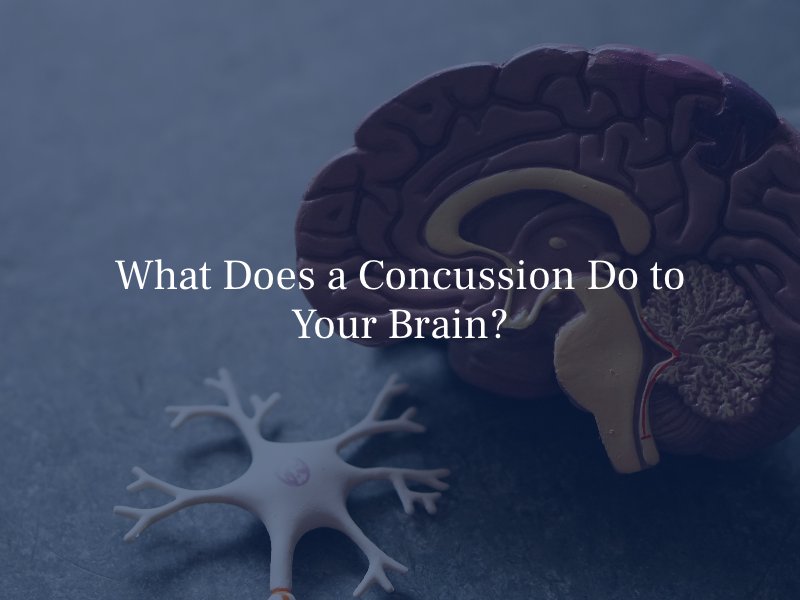What Does a Concussion Do to Your Brain?
April 19, 2023 Posted In Brain Injuries
Concussions are a type of traumatic brain injury (TBI) that occur when the brain experiences a sudden jolt or impact. They are common among athletes in contact sports but they also happen in everyday life, such as during a fall or car accident in Riverside.

What Happens to the Brain During a Concussion?
During a concussion, the brain experiences a sudden jolt or impact that can cause it to bounce or twist within the skull. This movement can damage brain cells and disrupt the brain’s normal functioning. It can also cause chemical changes that further disrupt brain function.
One of the primary effects of a concussion is the disruption of communication between neurons, the brain cells that communicate with one another to control the body’s functions. This disruption can cause a range of symptoms, including headaches, dizziness, and difficulty concentrating.
Concussions can also lead to changes in mood and behavior. For example, some people experience irritability, anxiety, or depression after a concussion. These changes may be related to the disruption of the brain’s normal chemical balance or the physical damage caused by the injury.
Long-Term Effects of Concussions
While most people recover from a concussion within a few weeks, some may experience long-term effects.
Post-Concussion Syndrome (PCS)
It is estimated that around 10-20% of people who have experienced a concussion will go on to develop PCS. The symptoms of PCS can be quite varied and may include physical, cognitive, and emotional symptoms. These symptoms can last weeks, months, or even years after the initial concussion. Physical symptoms of PCS may include headaches, dizziness, fatigue, sensitivity to light or sound, and difficulty sleeping. Cognitive symptoms may be memory problems, difficulty concentrating, and feeling mentally foggy or confused. Emotional symptoms can be irritability, anxiety, and depression.
The exact cause of PCS is not fully understood, but it is believed to be related to the disruption of normal brain function during a concussion. As a result, the brain may be more vulnerable to further injury and changes in function in the days and weeks following a concussion.
Chronic Traumatic Encephalopathy (CTE)
Multiple concussions or a history of head injuries can increase the risk of developing CTE, a degenerative brain disease that can cause cognitive impairment, behavioral changes, and other symptoms. CTE is a progressive disease that can take years or even decades to develop. It is thought to be caused by the accumulation of a protein called tau in the brain, which can damage brain cells and disrupt brain function.
Preventing Concussions
There are steps you can take to reduce your risk of getting a concussion. These include:
- Wear protective gear: If you play sports, ride motorcycles, or engage in other activities that carry a risk of head injury, make sure you wear appropriate protective gear, such as a helmet.
- Practice safe driving: Motor vehicle accidents are a common cause of concussions. To reduce your risk of injury, always wear your seatbelt and avoid distracted or impaired driving.
- Use caution when walking or running: To reduce your risk of a slip, trip, or fall, wear appropriate footwear, pay attention to your surroundings, and avoid running or walking on slippery surfaces.
- Make your home safe: Head injuries can also occur in the home. To reduce the risk, make your home free from hazards such as loose rugs, cluttered floors, and poorly lit areas.
While not every hit to the head requires medical attention, seeing a doctor after any head injury is still a good idea, especially if you experience symptoms. Seeking prompt medical care can help ensure that a potential concussion is identified and treated appropriately, leading to the best possible outcome. Contact our Riverside traumatic brain injury lawyers today.